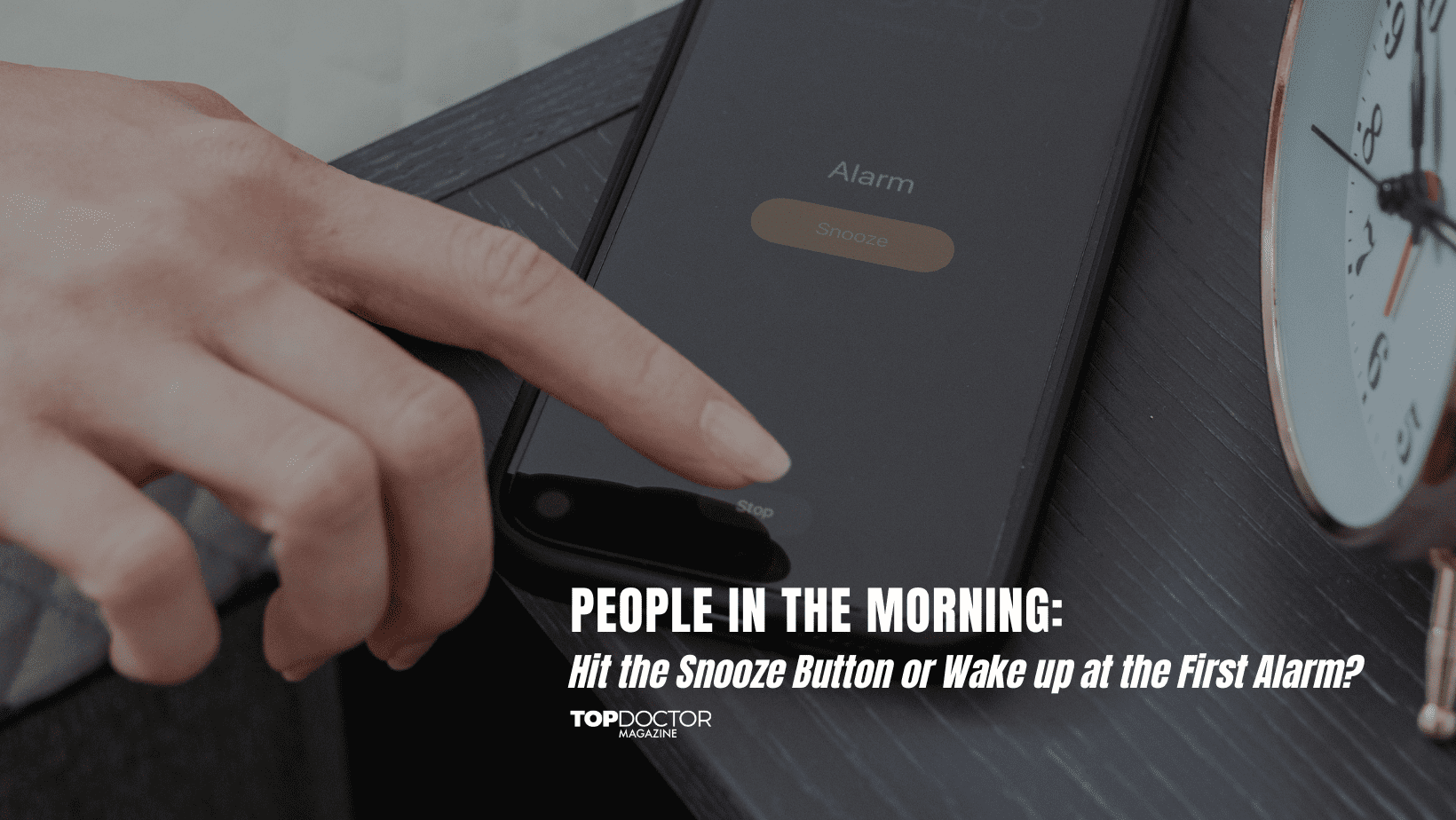We’ve all been there: the piercing sound of the alarm clock jolts us awake, and our first instinct is to hit the snooze button, granting ourselves a few extra minutes of precious sleep. It’s a common practice for many people, but did you know that hitting the snooze button may actually be detrimental to your health?
Interrupted Sleep Cycles
When you hit the snooze button and go back to sleep, you’re actually disrupting your sleep cycle. Our sleep is divided into different stages, including light sleep, deep sleep, and REM (rapid eye movement) sleep which all occur in cycles throughout the night and are important for various aspects of our physical and mental well-being.
Hitting the snooze button can throw off these sleep cycles. When you drift off to sleep after hitting snooze, you’re likely to enter into a new sleep cycle, but it’s often not enough time to complete a full cycle. This can leave you feeling groggy and disoriented when you finally do wake up and can lead to sleep fragmentation, where your sleep is repeatedly interrupted, resulting in poor sleep quality overall.
Disrupted Circadian Rhythm
Our bodies have an internal clock known as the circadian rhythm, which regulates our sleep-wake cycle. When you hit the snooze button and go back to sleep, you’re sending mixed signals to your circadian rhythm. It confuses your body and can make it more difficult for you to wake up feeling refreshed and alert.
Consistently hitting the snooze button and disrupting your circadian rhythm can lead to a condition known as “social jet lag.” This occurs when your body clock is out of sync with your daily routine, such as waking up early during the workweek and then sleeping in on weekends.
Increased Stress and Anxiety
Hitting the snooze button and repeatedly delaying the start of your day can also lead to increased stress and anxiety. When you hit snooze, you’re essentially delaying your responsibilities and setting yourself up for a rushed morning which can create a sense of urgency and stress, as you scramble to get ready and make up for lost time.
Furthermore, the habit of hitting the snooze button can contribute to a feeling of procrastination and lack of control over your day. It can set a negative tone for the rest of the day as you start off feeling behind and rushed. This increased stress and anxiety can have a negative impact on your mental well-being and overall health.
Missed Opportunities for Healthy Habits
Hitting the snooze button also means you’re missing out on valuable time in the morning to engage in healthy habits. Morning is a great time to establish a routine that sets a positive tone for the rest of your day. You can use that time to exercise, meditate, have a healthy breakfast, or simply take a few moments for yourself before the hustle and bustle of the day begins.
By hitting snooze and delaying the start of your day, you’re robbing yourself of these opportunities to prioritize your health and well-being. It can also create a sense of rushing through your morning routine, which may result in skipping important self-care practices that contribute to your overall health and happiness.
Breaking the Snooze Button Habit
Breaking the snooze button habit may take some effort, but it’s a change that can greatly benefit your health and well-being. Here are some tips to help you kick the snooze button habit:
- Set a consistent bedtime: Make sure you’re getting enough sleep by setting a consistent bedtime that allows you to get the recommended 7-9 hours of sleep each night. This will help you wake up feeling refreshed and less likely to hit snooze in the morning.
- Move your alarm clock: Place your alarm clock or phone across the room from your bed so that you have to physically get out of bed to turn it off. This can help you resist the temptation to hit snooze and make it more difficult to do so.
- Use an alarm sound that you dislike: Choose an alarm sound that you don’t particularly like, so that it’s less tempting to hit snooze just to make the noise stop. Avoid using your favorite song as an alarm, as it may make you associate hitting snooze with something enjoyable.
- Avoid screens before bed: Exposure to screens, such as smartphones or laptops, before bedtime can disrupt your sleep quality. The blue light emitted by screens can interfere with the production of melatonin, a hormone that helps regulate sleep. Try to avoid screens for at least an hour before bedtime to improve the quality of your sleep and make it easier to wake up on time.
- Place a glass of water by your bed: Keep a glass of water by your bed and drink it as soon as you wake up. This can help you feel more awake and alert, making it less tempting to hit snooze and go back to sleep.
Breaking the habit of hitting the snooze button may take time and effort, but the benefits to your health and well-being are worth it! You can develop healthier sleep habits and wake up feeling refreshed and energized, ready to tackle the day without hitting snooze. Remember, consistency and commitment are key, so be patient with yourself and keep practicing until it becomes a new healthy habit!






0 Comments